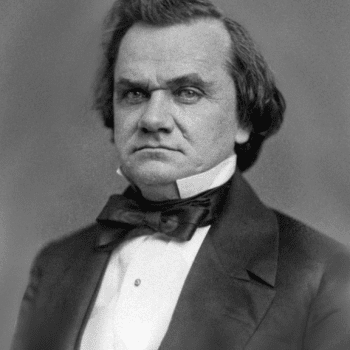The Libertarians had a prime opportunity to make their party an alternative to voters who oppose both Hillary Clinton and Donald Trump. And yet, say several commentators, they blew their chances by nominating two candidates who are not only pro-abortion, but are also explicitly anti-religious liberty. Gary Johnson and Bill Weld believe discrimination statues should apply to Christians who do not want to participate in gay weddings. And Johnson has even called for outlawing the burqa for Muslim women. And yet Weld supported such anti-liberty measures as the Patriot Act, Eminent Domain, and gun control!
Libertarians who have actually been elected to major public offices, though–such as Ron Paul, Rand Paul, Justin Amash, and Tom Massie–are also pro-life! Neither social conservatives nor “the liberty caucus” appear to have a candidate.
From Timothy P. Carney,
Is this the dawn of bake-me-a-cake libertarianism? | Washington Examiner:
The Libertarian Party just nominated two former governors, New Mexico’s Gary Johnson for president and Massachusetts’ Bill Weld for vice president, in a year when more voters than ever may look for a third choice.
But Johnson and Weld at times seem to be working hard to push away one particularly homeless voting bloc that could ally with Libertarians this year: social conservatives. From their rhetoric to their policy proposals, the Libertarian nominees seem to be running againstconservatives more than for liberty.
Weld and Johnson held their first post-nomination joint interview on Tuesday, on liberal network MSNBC. “We’ve never bought into this anti-choice, anti-gay…sense of the Republican Party,” Weld said, as his first comment to the national television audience.
The message was clear: We don’t need those backward Christian Right bozos as much we need as you MSNBCers.
Johnson has sent similar signals, suggesting that his love of liberty is second to his revulsion to religion. In January, for instance, Johnson said he would make it a federal crime for women to wear the Burqa, the full-body covering worn by women in certain strains of Islam. Johnson recanted a day later, while continuing his warnings about the threat of Sharia — Islamic law — in the U.S.
This spring, Johnson pushed aside freedom of conscience. When asked in an Oregon debate about laws and lawsuits requiring caterers to participate in gay weddings, Johnson took the big-government side — for coerced baking in the name of gay rights. When later asked about this anti-liberty view, Johnson made the standard liberal conflation between selling off-the-shelf cupcakes to a gay customer (which is straight-up discrimination against a person) and refusal to participate in a ceremony (which is a freedom of conscience issue, a freedom of association issue, and often a free speech issue).
The dress-code libertarianism and bake-me-a-cake libertarianism Johnson has embraced isn’t libertarianism at all — it’s left-wing social engineering enforced at gunpoint. Coming from Johnson and Weld, it reeks of raw identity politics. The only consistent theme is that religious people are bad. . . .
This puts Johnson and Weld at odds with the rest of libertarianism. The Cato Institute and the Reason Foundation both filed amicus briefs on behalf of Hobby Lobby, the Christian-owned store that objected to Obama’s contraception mandate.
Even on abortion, Johnson and Weld could find common ground with social conservatives. The most libertarian GOP candidates in recent cycles — Rand Paul and Ron Paul — were both pro-lifers who pointed out that libertarianism doesn’t preclude protecting babies from homicide. In fact, all the most free-market lawmakers are staunch pro-lifers. For instance, the three senators with the highest 2015 Club for Growth scores are Mike Lee, Ben Sasse and Marco Rubio. You have to go down to No. 48 on the Club’s ranking to find a senator who’s a legitimate moderate pro-lifer — all the top 47 are strong pro-lifers.
[Keep reading. . .]
See also David Harsanyi, Libertarians Could Appeal To Social Conservatives. They Just Don’t Want To, The Federalist:
Consider this: the most popular libertarian politician over the last 30 years is probably Ron Paul, who maintained that abortion on demand was the “ultimate state tyranny.” The only libertarians elected to Congress — Rand Paul, Justin Amash, and Tom Massie — are all pro-lifers. Perhaps a libertarian’s electoral success is predicated on being pro-life. Whatever the case, the “libertarian base” is obviously pretty comfortable with the idea. It’s the only party left that could house people with both viewpoints.
Or was.
At Reason magazine, Nick Gillespie offers a far more compelling take on all the tension between these two camps, arguing that the Johnson/Weld ticket merely preaches “fiscal conservatism and social liberalism.”
Is that what libertarianism is about: preaching social liberalism? Or is it about offering a system of governance that allows people to live as they please with minimal interference from the state? Because the latter position might hold great appeal across a number of cultural lines, while the former makes libertarians sound like a bunch of progressives who might want to cut taxes one day.
For instance, Gillespie argues just “as you can be against drug prohibition but against drug use, you can argue strenuously against abortion while not believing it should be banned by the state.” I strongly agree with this reasoning. In the same way, though, a person can also be strenuously against “discrimination” and “transphobia” and still believe in free association and religious liberty. Yet the arrangement seems to skew in one direction these days.
You may have noticed, for example, that while there’s no room for a pro-life VP candidate in today’s pro-choice Libertarian Party, an eminent domain-loving politician who backed gun control and supported the Iraq War and the Patriot Act [Governor Weld] will do just fine.
[Keep reading. . .]
















